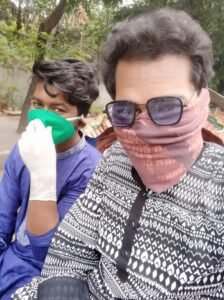Prince Chowdhury and Samson Baidya met long before the world expected anything of them. Their first handshake came at the age of six, over a game of marbles on a dusty lane in Old Dhaka. Their parents were neighbors, their birthdays just two weeks apart, and their lives—practically identical in rhythm—moved in sync from that day on.
Childhood was a glorious chaos. Every photo told a story: Prince with his slingshot, Samson with his wide grin and a half-eaten popsicle. They celebrated every small victory—winning street cricket matches, skipping tuition unnoticed, discovering new tea stalls that sold hot singaras for cheap.
By the time they hit their teenage years, they had formed a bond of defiance and dreams. They smoked their first cigarette behind the school canteen, shared their first bottle of local whiskey under the moonlight, and spent countless nights getting high and talking about life, money, meaning—and how they would never, ever be ordinary.
Prince was the smoother talker, the schemer, the one who saw connections. Samson was the builder, the doer, with a calm resolve and deep, strategic mind. Together, they were dangerous—in the best way possible.
“We’ll build our own kingdom,” Samson often said. “We just need time and trust.”

The Shift
In their early twenties, life hit back.
University stress. Family pressures. Financial uncertainty. Their once-daily meetings turned into rare weekly escapes. Even on exam weeks when they didn’t meet, they still left each other voice notes—usually just a dry cough, then: “Bhai, remember—CEO vibes only.”
At 24, Prince confessed something to Samson over a joint and instant noodles. “I wanna move to Korea. Not just for K-pop or business. I feel like I need to grow somewhere new.”
Samson didn’t blink. “Then go. I’ll hold it down here.”
And he did. While Prince struggled with the Korean language, delivered food in Seoul winters, and hustled through visa complications, Samson climbed the ladders of marketing agencies back in Dhaka—slow, methodical, and focused.
But no matter the miles or the months, their bond was bulletproof. They shared business ideas over midnight calls. Mapped out future ventures on Google Docs and WhatsApp. They dreamt like teenagers but planned like CEOs.
The Rise
At 30, it all started clicking.
Prince landed a job in a Korean export firm. Samson got promoted to regional strategy head at a major Bangladeshi conglomerate. They launched their joint venture: PS Global Connect.
Their first hustle? Exporting jute products and handicrafts from Bangladesh to boutique markets in Seoul. Then came garments. Then eco-packaging. Within five years, they had offices in Banani and Busan, and a team of 60+ employees.
But their dream was bigger than profits.
At 36, they registered Bondhon Foundation, an NGO to serve at-risk youth in Bangladesh. With help from Korean donors and local partners, they opened skill-development centers, digital literacy programs, and even mental health support units.
They became the faces of a new generation of South Asian entrepreneurs—culturally rooted, globally connected.
At 40, they were invited to speak at conferences in Singapore, Berlin, and Seoul. TEDx. Forbes Asia. They still wore sneakers under their suits. They still smoked on rooftops and called each other “Bondhu” before every big speech.
Their parents watched them with pride. Their staff admired their raw loyalty to each other. Their community? Inspired.
The Fall and the Farewell
At 52, Samson got sick.
Pancreatic cancer. Stage IV.
He didn’t tell Prince for the first few months. “He’s too busy building for us,” Samson told his wife. “Let him build.”
But Prince knew something was wrong. Samson was slower on calls. Quiet in meetings. One day, Prince flew in unannounced. They didn’t talk. They just lit cigarettes on the same old rooftop and sat for hours.
“I’m tired, bhai,” Samson whispered.
Prince didn’t reply. He just placed his hand on his friend’s shoulder.
For the next three years, Prince shuffled between Seoul and Dhaka. He ran both the business and the NGO, kept things moving, never letting anything fall. But every time he came back, it felt more final.
Samson passed away on a January morning. The sky was clear. The air, cruel.
The funeral was quiet. No speeches. Just people who loved him.
Prince walked to the tomb, pulled out a hand-rolled cigarette, lit it, took a deep drag, and placed it gently on the grave.
“This was our last meeting spot. No words needed.”
The Legacy
Prince never remarried. Never stopped building. He expanded PS Global into five countries, raised over $10 million for Bondhon Foundation, and by 60, he was on the cover of Time Asia.
But every year on January 11, he flew to Dhaka. Sat by Samson’s grave. Smoked a cigarette. And stayed quiet.
On his 70th birthday, at a private charity gala, someone asked Prince, “What’s your biggest success?”
He didn’t mention money. Or fame. Or Forbes.
He just said:
“Loyalty. We said we’d build something together. We did. From cigarette breaks to boardrooms. He’s not here anymore, but we’re still doing it. That’s legacy.”
Because some friendships don’t end. They echo. In buildings, in schools, in lives saved. In the ashes of a shared dream turned reality.




